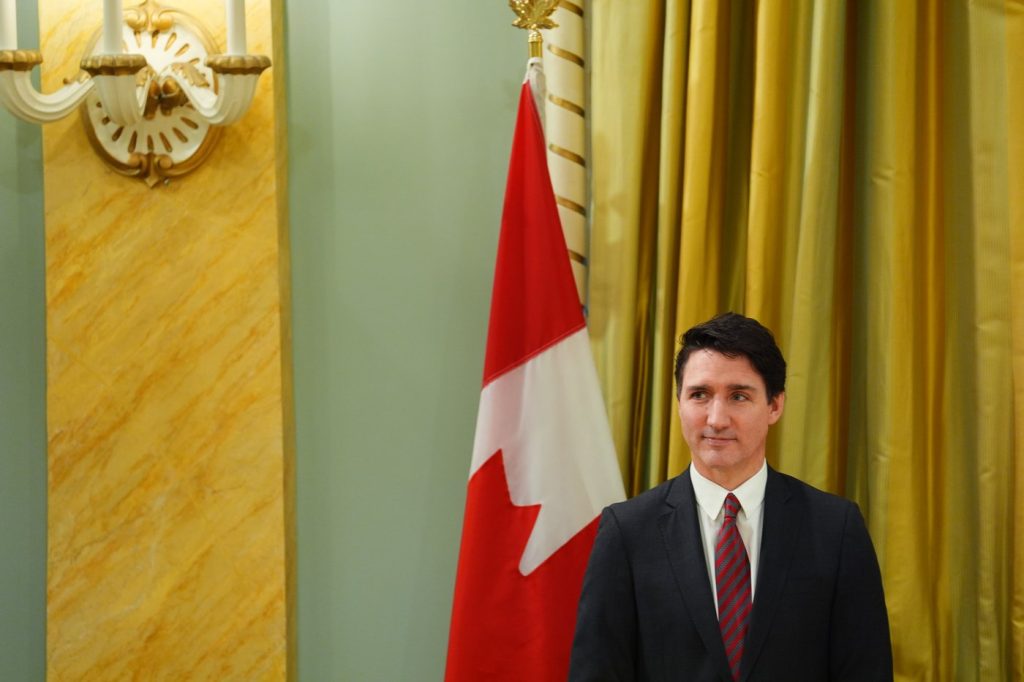The Canadian Press has reported several significant stories that capture the current political and social landscape in Canada and its relationship with the United States. This roundup focuses on the Liberal Party meeting amidst leadership changes, reactions to incoming U.S. President Donald Trump’s economic threats, and a recent labor dispute in Ontario.
Liberal MPs Discuss Leadership Transition
In Ottawa, Liberal Members of Parliament (MPs) convened for the first time since Prime Minister Justin Trudeau announced he will step down. The national caucus meeting, conducted both in person and online, was initially scheduled to last six hours to discuss Trudeau's previous refusal to resign. However, with his resignation announcement, the agenda shifted to strategizing for the future.
The Liberal Party is now embarking on a national search for a new leader, aiming to find a candidate capable of competing effectively against the popular Conservative Leader Pierre Poilievre. Notable cabinet ministers, including Jonathan Wilkinson, Steven MacKinnon, and Karina Gould, are actively considering leadership bids, indicating a potential reshaping of the party's direction in the wake of Trudeau's departure.
Experts React to Trump’s Economic Threats
As Donald Trump prepares to take office as the incoming U.S. president, his aggressive rhetoric regarding potential economic measures against Canada has raised concerns among Canadian experts. Trump has suggested he could leverage "economic force" to prompt Canada towards U.S. integration, while highlighting grievances over the trade deficit and expressing disinterest in purchasing Canadian lumber, dairy, or automobiles.
Flavio Volpe, president of the Automotive Parts Manufacturers' Association, criticized Trump’s comments, arguing that they indicate a lack of understanding of the deep interconnections between the Canada-U.S. auto industries. Moreover, Trump has threatened to impose a 25% tariff on imports from Canada and Mexico, citing security concerns at the border, which has provoked anxiety among Canadian businesses and policymakers.
The Shift in Trudeau's Public Image
Once heralded as a "cool" leader, Justin Trudeau's image has taken a hit as political dynamics have shifted. Early in his tenure, Trudeau garnered significant attention, appearing in high-profile publications like Vogue and being featured on the cover of a Marvel comic, which resonated with young voters during the 2015 election. However, as competitors adopted similar online strategies, Trudeau’s approach has come under scrutiny.
Despite these challenges, sentiments about his impact remain nuanced. Albert Burgesson, a former member of Trudeau's Youth Council, emphasized that the Prime Minister has helped many young Canadians feel heard and validated, even amidst growing discontent.
Mixed Reactions from Americans in Canada to Trump’s Statements
Trump's controversial remarks about imposing tariffs and suggesting that Canada could become the "51st state" have elicited a range of responses from Americans residing in Canada. While many Canadians express anger and apprehension about Trump’s threats, the perspectives of American expatriates vary significantly based on their political affiliations and voting choices in the U.S. presidential election.
Jacob Wesoky, who serves as the executive vice chair of Democrats Abroad Canada and studies political science at McGill University, voiced his disappointment regarding Trump’s remarks, reflecting a sentiment shared among other Americans living in Canada who oppose Trump’s policies.
Ontario College Faculty Agreement Reached
In a significant development in labor relations, the bargaining agent for Ontario’s 24 public colleges and the union representing faculty members have opted for binding arbitration, thereby averting a potential strike. The College Employer Council and the Ontario Public Services Employees Union engaged in mediation this week after months of negotiations.
The union, which advocates for over 15,000 faculty members across the province, had indicated that labor action could commence imminently if negotiations failed, highlighting the urgency of reaching an agreement. Ultimately, while some benefits were agreed upon, key issues remain unresolved and will be addressed by an arbitrator.










